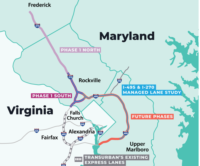California Moves Forward With Delta Tunnel

An aerial view of the Sacramento-San Joaquin Delta.
Photo courtesy of the California Department of Water Resources.
The California Department of Water Resources says it will start environmental review of the Delta Conveyance Project, a single-tunnel, dual-water conveyance plan that aims to modernize infrastructure and restore and protect water supply in the Sacramento-San Joaquin Delta.
The project is a part of California’s Draft Water Resilience Portfolio, released Jan. 3 by California Gov. Gavin Newsom and is a derivative of California WaterFix, a twin tunnel program supported by former Gov. Jerry Brown but killed by Newsom in favor of a single-tunnel solution. WaterFix, a $17-billion project, was opposed by some water agencies and environmental groups, including the Natural Resources Defense Council, because of its cost and its potential impact on threatened and endangered species. The new tunnel faces similar opposition.
With expectations that the environmental review and permitting process will take three years, construction on the new project can not begin until at least 2023, and the Department of Water Resources expects the overall conveyance project, if approved, will take 13 years to construct and commission, says Erin Mellon, assistant director of DWR’s public affairs office.
The proposal calls for a single main tunnel and pumping capacity that would accommodate a total of 6,000 cu ft per second through two intake facilities. In addition, the plan includes construction of tunnel reaches and shafts, forebays, and pumping plants, which would likely require building access roads, barge unloading facilities, concrete batch plants, fuel stations, mitigation areas and power transmission and distribution lines.
Cost estimates, as well as a cost-benefit analysis and a financial analysis, will be developed during project planning, Mellon says.
The project would be funded by the State Water Contractors (SWC), a non-profit association of 27 public water agencies, which purchases water from the California State Water Project, a DWR-operated, 700-mile water storage and delivery system of reservoirs, aqueducts, power plants and pumping plants that supply water to 27 million people in California.
Jennifer Pierre, SWC general manager, said a Delta tunnel is a necessary solution for a reliable California water supply as climate change impacts increase.
“Faced with the realities of more intense droughts and floods, the State Water Contractors have built local and regional projects to diversify and expand their water supplies, and they continue to explore new ways to serve their customers into the future,” Pierre said in a SWC statement. “For most of our members, it’s a cost-effective supply even as they invest to diversify their portfolios.”
California’s current conveyance system—which moves large portions of California’s surface water supply—faces major vulnerabilities including floods, subsidence, earthquakes and climate change, says Mellon. “This project is crucial to ensuring the long-term reliability of this major water supply.”
Meanwhile, Jeffrey Kightlinger, general manager of the Metropolitan Water District of Southern California, a state-established cooperative that supplies water to 19 million people in six counties, calls the plan “welcome progress” on a long-overdue upgrade to the state’s water delivery system.
According to the Water Resilience Portfolio, even a gradual rise in sea level will more more ocean saltwater into the San Francisco Bay/Sacramento-San Joaquin Delta and affect brackish and freshwater habitats.



